1. Cashiers

Who knows what AI has in store for us? That may change so many more jobs. But these are jobs that are so familiar to us and are definitely going the way of the toll booth operator, and then Milk Man.
The transactional role of the cashier is rapidly being challenged by “just walk out” technology and sophisticated self-checkout systems. While Amazon’s early automated stores still required humans for monitoring, the trajectory for retail is clear: faster, sensor-driven purchasing. As scanning technology and AI vision improve, the need for a person to manually ring up items will steadily decline. In its place, the future of in-store retail will focus on atmosphere and emotional connection, giving rise to roles like Retail Experience Designers. These specialists will curate store layouts, sensory elements, and personalized interactions, aspects of the shopping journey that technology can’t replicate. As futurists like Faith Popcorn have argued, for many consumers, shopping is already becoming less about the simple transaction and more about the immersive, curated atmosphere that technology can enhance but not create.
2. Truck Drivers
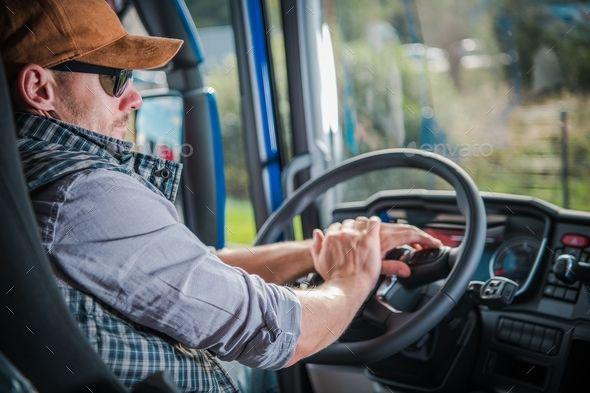
The long-haul trucking industry, which employs millions, is facing one of the most significant automated disruptions. Self-driving trucks are already undergoing real-world testing in controlled environments, and while challenges like regulatory frameworks and public acceptance remain, industry consensus is that automation will eventually transform freight logistics. The Brookings Institute has specifically highlighted the trucking sector as highly susceptible to dramatic change, even if the transition proves to be slower and more complex than some headlines suggest. While drivers will be displaced, they could be succeeded by Autonomous Fleet Supervisors, highly trained professionals who work from centralized, remote offices, monitoring and managing vast convoys of self-driving vehicles via sophisticated digital interfaces, intervening only during complex scenarios, route deviations, or system malfunctions.
3. Factory Workers
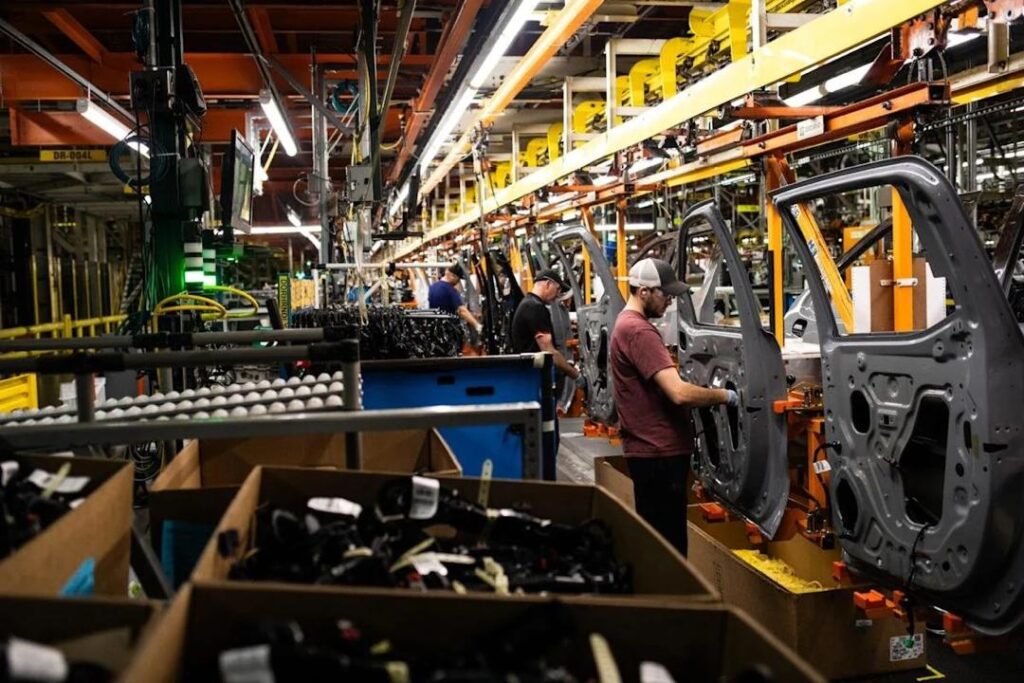
Factory floors have been at the forefront of automation since the industrial revolution, and this trend continues to accelerate, especially for jobs involving highly repetitive or precise assembly. Robots and advanced automated systems can now perform tasks with greater speed, consistency, and endurance than human workers. Yet, the increased complexity of these systems ensures that human expertise remains vital in a different capacity. Although assembly lines may become nearly worker-free, roles like Robot Maintenance Engineers will be indispensable. According to researchers at MIT, these highly trained technicians will be responsible for the installation, programming, repair, and optimization of sophisticated robotic systems. While the sheer number of factory workers needed will be dramatically reduced, the demand for this specialized, high-skill oversight role will be critical for maintaining the efficiency of the automated infrastructure.
4. Bank Tellers

The bank teller, once the essential face of financial services, has been declining in relevance for years due to the widespread adoption of ATMs, online banking, and mobile applications that handle routine transactions instantly. By 2050, the need for a person to manage deposits or withdrawals will likely have disappeared entirely. However, as transactions become automated, the need for human guidance on complex financial decisions remains. The replacement role could be the Financial Wellness Coach, a human advisor who helps customers navigate the intersection of personal finance, behavioral psychology, technology adoption, and long-term wealth planning. Economists suggest that while technology seamlessly handles the ‘what’ (the transaction), people still strongly desire and need human connection and trusted advice when it comes to the ‘how’ and ‘why’ of managing their money.
5. Travel Agents

The traditional travel agent role has been largely eroded by ubiquitous online booking platforms that offer immediate, self-service itinerary creation and price comparison. By 2050, AI will be capable of handling virtually every logistical aspect of travel, from optimizing flight connections to predicting delays and securing accommodation. This level of automation will push the human role toward hyper-personalization. The emerging role of the Adventure Curator will focus on designing and executing immersive, custom-built experiences, unique destinations, and cultural itineraries that a basic algorithm cannot yet imagine or book. The World Tourism Organization predicts a continued rise in demand for such highly personalized, niche travel, even while admitting that most travelers will still default to DIY digital booking, making the Curator role highly specialized rather than a mainstream replacement.
6. Teachers (as we know them)

The image of a single teacher lecturing at a whiteboard may become increasingly uncommon. Advances in AI tutors, virtual reality classrooms, and personalized, adaptive learning platforms are poised to revolutionize pedagogy. While uneven access and the digital divide remain real-world barriers, future education models could see humans shift from content delivery to personalized guidance. The next generation of educators may become AI Education Guides, helping students navigate a personalized, machine-driven learning journey, interpret complex data, and ensure socio-emotional development isn’t lost in the digital shift. The World Economic Forum suggests this model of AI-enhanced learning could dominate, but also cautions that the digital divide will likely keep some traditional, human-centric teaching alive, particularly in early education and underserved communities.
7. Customer Service Reps

The vast majority of basic customer service interactions in call centers are already managed by scripted bots and early-stage generative AI. Still, the common frustration consumers feel when dealing with non-human systems proves that the human element of empathy and complex problem-solving remains crucial. By 2050, while routine calls will be entirely automated, the human role will pivot to refining the machine’s capabilities. Humans may become AI Empathy Trainers, working with language models to teach them emotional nuance, natural-sounding dialogue, and appropriate, human-like responses to complex or highly-charged situations. Stanford ethicists argue that empathy and genuine, contextual communication will remain one of the last and most challenging frontiers of automation, ensuring that humans will still be needed to both define and teach the standards of emotional intelligence.
8. Fast Food Workers
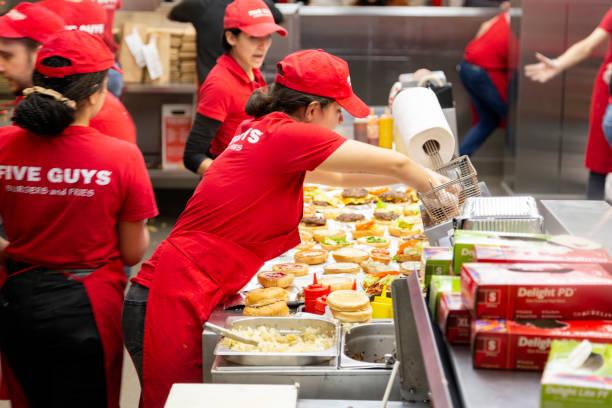
The automation of the fast-food kitchen is already underway, with robotic arms for frying, burger-flipping machines, and automated drink dispensers moving from laboratory settings into pilot restaurant locations. The thin profit margins of many fast-food chains have historically slowed the massive capital investment required for full-scale automation, but falling robotics costs will accelerate adoption. By 2050, many kitchens could be staffed almost exclusively by machines. However, while robots can cook, they struggle to provide the cultural and personalized nuances of the dining experience. A new role of Food Experience Coordinator could emerge, focused on adding culinary flair, managing personalized menu options, ensuring cultural alignment, and overseeing the complex interface between the automated kitchen and the consumer. A McKinsey report warns that while the backend cooking may be automated, some visible, human, customer-facing roles will likely remain to ensure a positive brand experience.
9. Postal Workers

The volume of traditional mail delivery has steadily shrunk due to the rise of email and online billing, and this decline will continue. The last mile of delivery is poised to be taken over by autonomous systems, including aerial drones and ground-based delivery robots, which could complete the transition by 2050. However, the adoption of this technology faces significant hurdles, including complex urban air traffic regulation, liability, and logistical challenges in dense areas. This complexity creates a new human oversight role: Drone Logistics Coordinators. These professionals will remotely manage and optimize fleets of autonomous delivery vehicles, navigate air traffic control systems, and troubleshoot real-time delivery exceptions. Companies like Amazon, UPS, and even NASA are already testing systems and concepts that necessitate this kind of specialized, centralized fleet management.
10. Journalists (as we know them)

Artificial intelligence is increasingly capable of generating high-quality written content, from summarizing financial reports and sports scores to drafting basic news articles. While this will displace journalists who focus solely on data aggregation or high-volume content, journalism is fundamentally about more than just data, it’s about credible, contextual, and ethical storytelling. This shift could lead to the rise of Narrative Authenticators. These human specialists would focus on the verification of facts, the sourcing of information, cross-checking multiple AI-generated narratives for bias or inaccuracy, and shaping the ‘truth’ behind the data. Harvard’s Nieman Lab suggests that even by 2050, human journalists will still be critical for upholding editorial standards, but their job will pivot to being less about the speed of writing and more about the rigorous, human-driven establishment of trust and credibility.
11. Construction Laborers

The construction industry is beginning to see the impact of automation with the development of large-scale 3D-printed homes and the introduction of specialized robotic crews for tasks like bricklaying and demolition. However, the complete automation of construction is significantly slowed by the industry’s highly localized nature, strict building codes and regulations, and unavoidable weather dependency. The future human role will focus less on manual labor and more on digital pre-planning. Construction AI Architects will emerge to simulate entire projects using advanced AI before any physical work begins, optimizing material use, predicting structural stresses, and anticipating logistical problems. The World Bank suggests this shift toward digital optimization will greatly improve project sustainability and safety, though traditional, highly skilled construction roles are unlikely to vanish everywhere at once.
12. Retail Clerks

As automated checkouts become standard and the ‘just walk out’ concept spreads, the traditional function of the retail clerk, processing transactions, will fade. However, a significant segment of shoppers continues to value human interaction and assistance, especially when making complex, high-value, or technology-heavy purchases. The future of the retail worker lies in specialization: evolving into Human Connection Specialists. Their value won’t be in their sales figures, but in their capacity for emotional engagement, building customer loyalty, and providing a warm, memorable experience that fosters brand allegiance. Analysts at Deloitte argue that the long-term success of physical retail is inextricably linked to creating a sense of community, expertise, and warmth, qualities that automation struggles to authentically replicate.
13. Secretaries/Assistants

The traditional role of the secretary or personal assistant, which historically focused on scheduling, typing, filing, and managing correspondence, is already being undermined by powerful AI-driven tools like automated scheduling assistants and generative language models. By 2050, the tasks of memo-typing and calendar management will be nearly fully automated. The new, elevated human role will be the Digital Life Manager. This person will take on the immense complexity of an AI-saturated personal and professional life, orchestrating smart home systems, overseeing aggregated health monitoring devices, managing security protocols, and strategically curating the myriad of digital schedules and platforms. Futurist Amy Webb notes that as AI becomes more pervasive, people will still require human oversight to simplify and manage the complexity of their digital existence, a role that demands high-level strategic thinking, not just typing memos.
14. Airline Pilots
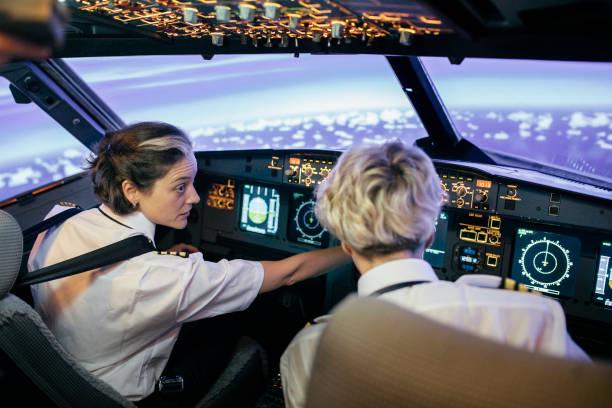
Modern aviation is already highly automated, with advanced autopilot systems managing the vast majority of flying time on commercial routes. Aircraft manufacturers like Boeing have even suggested that technically, pilotless commercial flights are feasible. However, public trust and regulatory safety standards lag significantly behind the technology. By 2050, while human pilots may remain in the cockpit of passenger planes for reassurance, especially in the event of unforeseen emergencies, the primary human role could shift to Flight Systems Overseers. These experts would remotely monitor and supervise fleets of commercial aircraft, managing multiple planes from a ground station and intervening only for critical system failures or complex air traffic control scenarios. It’s highly probable that cargo and freight flights, where safety concerns are different, will be the first to adopt full automation.
15. Farmers
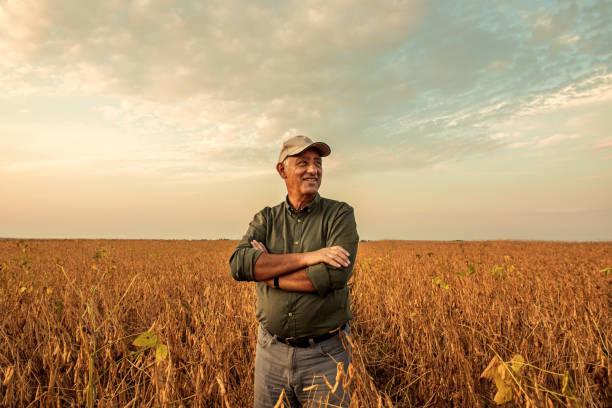
Farming, as a primary occupation, is projected to shrink as technologies like lab-grown protein, advanced vertical farming in city centers, and highly efficient hydroponics scale up to feed the world’s population. However, experts are quick to note that the desire for natural, regional, and culturally significant ‘real’ food means that traditional, albeit technologically modernized, farms are unlikely to disappear entirely. Instead, the farming role will evolve into the Food Systems Engineer. This professional will manage and optimize complex hybrid systems, overseeing the technology of algae vats for protein, controlling the nutrient flows in hydroponic facilities, and applying advanced genetics to traditional crops for better resilience and yield. The UN’s Food and Agriculture Organization (FAO) predicts a future dominated by these hybrid systems, integrating traditional and advanced methods rather than a total replacement of one by the other.
16. Security Guards

Physical security is rapidly transitioning from human patrol to an integrated system of advanced AI-powered cameras, facial recognition systems, and autonomous patrol drones. These technologies offer a level of constant, unbiased surveillance that human guards cannot match. However, the legal and ethical questions surrounding trust, liability, and the use of force ensure that human judgment will remain essential. By 2050, the guard role may pivot to the Cyber-Physical Security Architect, a professional who combines expertise in digital security (cybersecurity) with physical oversight. These individuals will design, manage, and audit the integrated security networks, intervening only when a complex or ethically ambiguous situation requires human judgment, as cybersecurity firms warn that human discernment is essential where physical safety intersects with ethical responsibility.
17. Call Center Workers

Voice automation and sophisticated natural language processing (NLP) are advancing rapidly, capable of handling complex conversational flows and understanding varying dialects and accents. Yet, the common experience of frustrated customers yelling “representative!” at an imperfect bot proves the difficulty of mastering genuine, empathetic conversation. While the traditional, high-volume call center worker may be replaced, the human skill set will shift to system design. The next profession will be the Conversational Designer, whose role is to script and refine the tone, nuance, and emotional intelligence of the AI systems. Gartner predicts that the majority of routine customer interactions will be AI-driven within decades, but stresses that humans will still be vital for the high-level design and continuous ethical calibration of these sophisticated conversational systems.
18. Miners
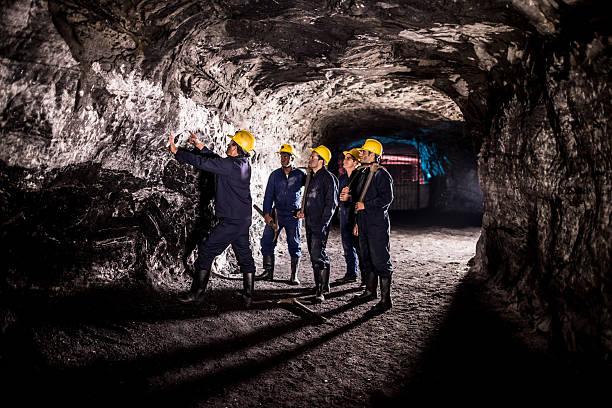
Underground and surface mining operations are inherently dangerous and logistically complex, making them prime candidates for automation via heavy-duty robots, autonomous drilling rigs, and advanced survey drones. By 2050, the human presence in Earth-based mining may be drastically reduced. As Earth’s resources become increasingly scarce, the focus may pivot to extraterrestrial resources, leading to the theoretical role of Asteroid Mining Coordinators. This highly specialized position would involve managing the remote operation of robotic extraction and processing equipment aimed at resources in space. NASA has long suggested that asteroid mining could transition from science fiction to a late-century reality. While costs and engineering challenges remain astronomical, the eventual need to extract non-terrestrial resources makes this a plausible, albeit speculative, replacement role.
19. Retail Pharmacists

The dispensing of medication requires precision and attention to detail, tasks that are highly suited to automation. AI and robotic dispensing systems can handle prescriptions with greater accuracy and speed than humans, reducing the need for the pharmacist’s traditional role behind the counter. However, the human need for trusted, complex health advice will remain. The future pharmacist could evolve into the Genetic Health Consultant, advising patients based on increasingly personalized, DNA-driven medicine. The Cleveland Clinic suggests that genomics will fundamentally transform patient care, with individuals receiving specific, tailored treatments based on their genetic profile. In this scenario, human advisors will be crucial in helping patients interpret vast amounts of genetic data and navigate overwhelming, complex medical choices.
20. Delivery Drivers

The final mile of goods delivery is currently being transformed by self-driving vans, sophisticated delivery robots, and aerial drones. While regulatory and safety hurdles currently slow widespread adoption, the trend toward autonomous delivery logistics is clear. By 2050, many human drivers could be replaced, but a new, high-level management role will be necessary to manage the resulting complexity. Urban Air Traffic Managers will emerge to coordinate the massive fleets of autonomous drones and ground vehicles. NASA’s urban air mobility research is already sketching out the architecture for this system, which will require specialized professionals to optimize routes, manage collision avoidance, and ensure system-wide logistical efficiency, even if the full-scale rollout is slower and more phased than current hype suggests.
21. Warehouse Workers
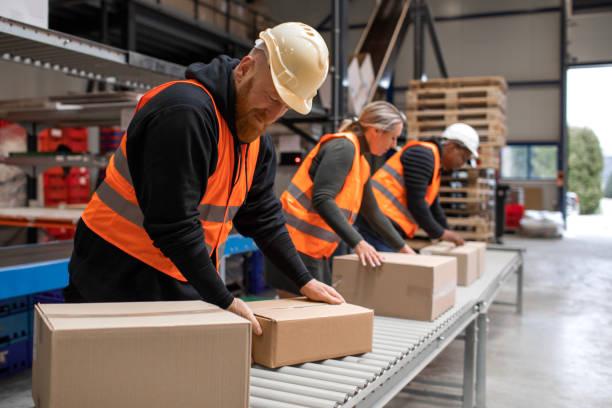
Warehouses are already hubs of automation, with systems and robots managing the sorting of packages, the movement of shelves, and complex inventory management. Repetitive tasks like ‘picking’ items for orders are highly susceptible to robotic takeover. By 2050, the physical laborers may be largely replaced by AI Inventory Forecasters. These professionals will be responsible for training, fine-tuning, and managing algorithms that predict consumer demand, anticipate supply chain disruptions, and optimize stock placement with unprecedented accuracy. A McKinsey report emphasizes that while robots can handle the physical labor, human intervention will still be necessary to correct for system failures, manage unexpected shortages, and refine the AI’s predictive models when real-world events inevitably contradict the data.
22. Waiters

In the fast-casual and routine dining sectors, robotic servers are likely to become commonplace, handling food delivery, table clearing, and simple order taking with efficiency. However, the higher end of the dining and hospitality industry thrives on human warmth, storytelling, and personalized attention, qualities that bots cannot fully replicate. The waiter of 2050 may evolve into the Experience Host, blending the roles of server, storyteller, and sommelier. This professional’s primary value will be in elevating the meal to a form of theater, providing highly personalized recommendations, and ensuring genuine human connection. Hospitality analysts are unified in the view that automation will dominate routine service, but high-end dining will continue to rely on the essential human capacity for sophisticated social and emotional engagement.
23. Politicians (as we know them)

Some futurists hypothesize about AI-driven governance, where machine algorithms analyze complex data and public sentiment to formulate policy with a level of objectivity that humans cannot achieve. Yet, politics is fundamentally about cultural nuance, charisma, building consensus, and trust, factors that machines struggle to manage. While routine policy analysis may be AI-driven, the human element will pivot to oversight. The new role will be the Ethics Overseer, a human professional or panel ensuring that tech-driven policy respects fundamental human rights, cultural values, and democratic principles. Prominent thinkers like Yuval Noah Harari warn that AI could drastically reshape governance, but public resistance to handing over full control of democratic processes to non-human entities is likely to keep the human in the loop, focusing on ethical compliance.
24. Lawyers

Artificial is already highly effective at tasks like drafting standard contracts, reviewing vast quantities of legal documents for relevance (e-discovery), and predicting the outcomes of cases based on historical data. By 2050, much of this routine, data-intensive legal work is expected to vanish. However, the legal system’s fundamental role as an arbiter of human life, messy, emotional, and complex, will remain. The new legal role could be the Justice Interpreter, a highly skilled professional mediating between the rigid, rules-based output of machine law and the nuanced reality of human life. Experts at Harvard Law suggest that while AI will be unparalleled at applying rules, it will remain clueless at compassion and contextual fairness, ensuring that humans will still play the essential role of translating between technological efficiency and moral justice.


